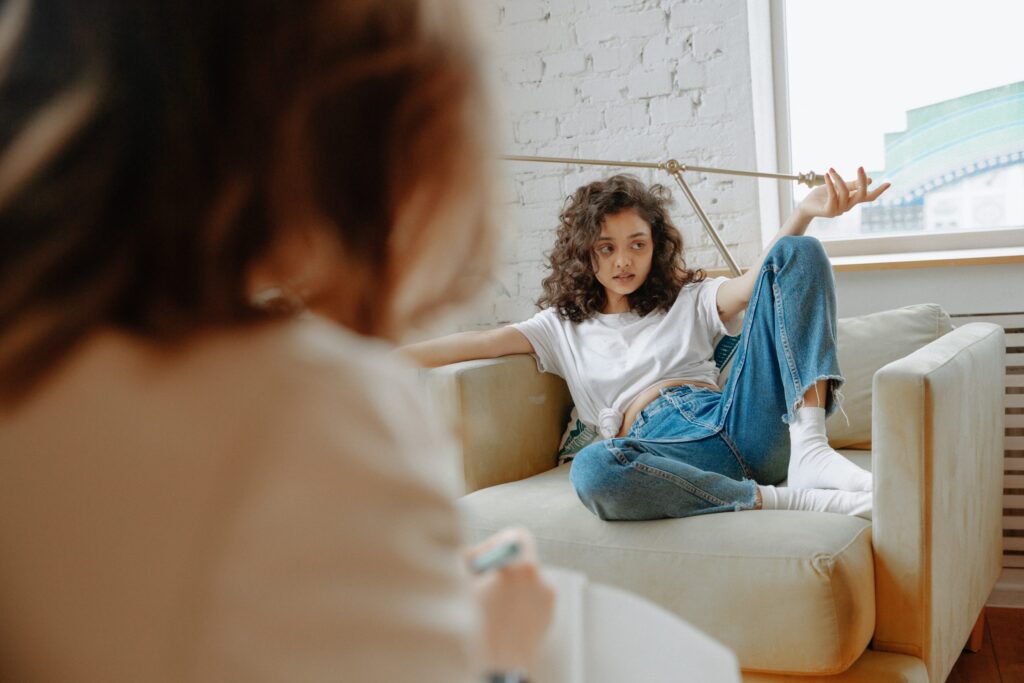In today’s world, social media is almost impossible to avoid—and why would we want to? These platforms offer so many positives: they let us share memories, connect with loved ones, celebrate milestones, and even discover communities we might never have found otherwise.
But while social media can be fun and uplifting, it can also quietly affect our emotional well-being. You might find yourself scrolling through your feed and suddenly feeling sad, anxious, or strangely disconnected—without being entirely sure why.
A study conducted by the WHO Regional Office for Europe in 2022, titled the
Health Behaviour in School-aged Children
(HBSC) study, revealed a concerning trend in adolescent digital behaviors across Europe, Central Asia, and Canada.
Key findings from the study indicate that problematic social media use among adolescents significantly increased from 7% in 2018 to 11% in 2022. Additionally, the study highlighted that 12% of adolescents are at risk of problematic gaming. These findings raise urgent concerns about the potential negative impacts of digital technology on the mental health and well-being of young people.
The study, which surveyed nearly 280,000 young people aged 11, 13, and 15, also provided further details on these trends. For instance, girls reported higher rates of problematic social media use compared to boys (13% vs 9%), while boys were more likely to show signs of problematic gaming than girls (16% vs 7%). Problematic social media use is described as addiction-like behavior affecting daily life. The rise in problematic social media use is linked to lower mental and social well-being. The report also noted that heavy, non-problematic users reported stronger peer support. Interventions should be tailored and focus on digital literacy. For a more detailed look at the findings and recommendations, you can refer to the report on the WHO website.
If social media is here to stay—and it is—it’s worth asking: how can we maintain a healthy relationship with it? Here are a few areas to reflect on:
The Comparison Trap
It’s human nature to compare ourselves to others, especially when we’re still discovering who we are. In some cases, comparison can be motivating—seeing a talented friend play guitar might inspire you to practice more.
But social media amplifies comparison in an unrealistic way. With constant exposure to curated, filtered, and sometimes edited images of people’s lives, it’s easy to feel like you’re falling short. The highlight reels we scroll through often don’t reflect reality, yet they can trigger deep feelings of inadequacy—about your body, your lifestyle, or even your worth.
When Mean Behavior Becomes Normalized
Another downside to social media is how easily it enables unkindness. People often say things online they would never say face-to-face. Whether it’s trolling, shaming, or casual cruelty in comment sections, the emotional impact can be real—even if the negativity isn’t directed at you personally.
Spending time in digital spaces where hostility is normalized can slowly chip away at your own sense of safety and self-esteem.
Social Skills in a Digital Age
Digital communication—texting, commenting, DMing—can make staying in touch easier. But it’s also important to recognize what gets lost when we rely solely on screens to connect.
Social skills like reading body language, interpreting tone, and expressing empathy are developed through face-to-face interaction. Without regular practice, these abilities can start to feel unfamiliar or even uncomfortable. In fact, many people begin to feel more anxious about in-person conversations simply because they’ve become less used to them.
As psychologist Catherine Steiner-Adair, EdD, puts it: “It’s easier to keep your guard up when you’re texting, so less is at stake.” While that might feel safer, it can also make our relationships feel less authentic or emotionally fulfilling.
The Pressure of Constant Connection
Even when you’re physically alone, your phone keeps you digitally connected to the world—and that can be exhausting. Social media blurs the line between solitude and stimulation. You’re never really “offline,” and that lack of mental space can make it harder to decompress and recharge.
Features like read receipts, online status indicators, and nonstop notifications can create unnecessary pressure. You may feel guilty for not replying right away, or anxious when someone leaves your message on “read.” It’s the stress of being perpetually available.
Clinical psychologist Donna Wick, EdD, highlights this well: “Everyone needs a respite from the demands of intimacy and connection; time alone to regroup, replenish and just chill out.
Taking Back Control
Social media isn’t inherently bad—it’s just a tool. The key is to notice how it makes you feel and to set boundaries accordingly.
-
Are you doomscrolling at night and waking up exhausted? Try using your phone’s app limits or downtime features.
-
Are constant group chat pings stressing you out? It’s okay to mute notifications and check in when you feel ready.
-
Do you feel worse after certain types of content? Consider curating your feed to follow accounts that inspire or uplift you.
Most importantly, remember: you should be in control of how social media fits into your life—not the other way around.
Need Support? You’re Not Alone.
If social media use is affecting your mood, self-esteem, or relationships, therapy can be a helpful space to explore those feelings. Together, we can look at the impact of digital life on your mental health and work toward a more balanced, fulfilling relationship with technology—and with yourself.
Let’s connect.

